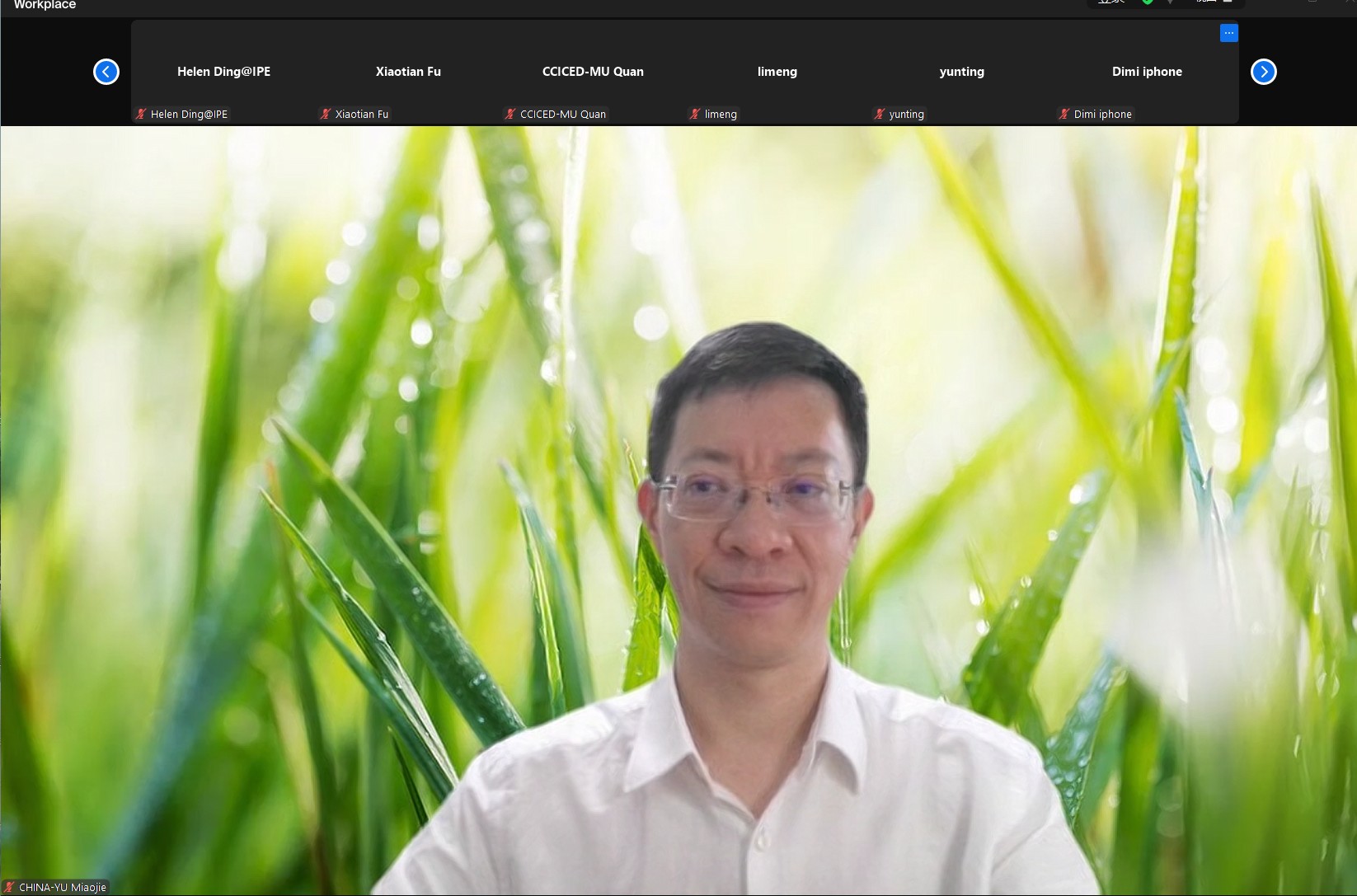
On September 10, 2025, the Seminar on Research Progress of Green Trade under the China Council for International Cooperation on Environment and Development (CCICED) was held in Beijing in a hybrid online-offline format. The conference focused on the status, challenges, and strategic responses in global green trade development. Professor Yu Miaojie, a Deputy to the 14th National People’s Congress, Fellow of the International Economic Association (IEA), and President of LNU, was invited to participate via video link and delivered a keynote speech.

In his speech, Professor Yu Miaojie elaborated on the current development status and core challenges of green trade, and emphasized that the interactive relationship between trade and the environment is of crucial significance for implementing the new development philosophy and advancing China’s ecological civilization construction. He analyzed the interaction mechanism between trade and the environment from three dimensions — scale, structure, and technology — pointing out that there are multiple possibilities for the net effect of the superposition of these three factors, and that the Environmental Kuznets Curve (EKC) hypothesis exhibits significant differences in applicability between developed and developing countries. Meanwhile, he proposed that although environmental regulations have an objective impact on trade, the scale of this effect is weaker than that of traditional factors such as labor and capital.
At the policy practice level, Professor Yu Miaojie focused on analyzing two types of core tools. While Border Carbon Adjustment (BCA) can address ‘carbon leakage’ and safeguard trade fairness, it is likely to be regarded as a disguised trade barrier due to the incomplete carbon accounting systems in developing countries, posing challenges to the exports of relevant countries. In recent years, trade agreements such as the United States-Mexico-Canada Agreement (USMCA) and the Comprehensive and Progressive Agreement for Trans-Pacific Partnership (CPTPP) have incorporated ‘environmental standards’ into core obligations and strengthened their implementation, and the adjustments to relevant rules have exerted a direct impact on the development of China’s green trade.
Yu Miaojie conducted an in-depth analysis of the multiple challenges currently facing the development of China’s green trade. He pointed out that externally, China needs to address risks such as the intensification of international green rule barriers, fragmentation of standard certification, and ‘low-carbon lock-in’ in the value chain. Internally, there are issues including imbalances in regional and trade structures, rising cost pressures on enterprises, ‘chokepoints’ in core technologies, insufficient alignment of green standards, and incomplete internal support systems — all of which restrict the high-quality development of industries.
In conclusion, Yu Miaojie pointed out that despite facing numerous challenges, driven by the joint efforts of policy guidance, market expansion, and technological innovation, China’s green trade has achieved multiple breakthroughs in scale, structure, and competitiveness. He emphasized that China has always adhered to taking its own initiatives and responding proactively on the basis of complying with international rules and will surely blaze a broad and smooth path for the development of green trade.